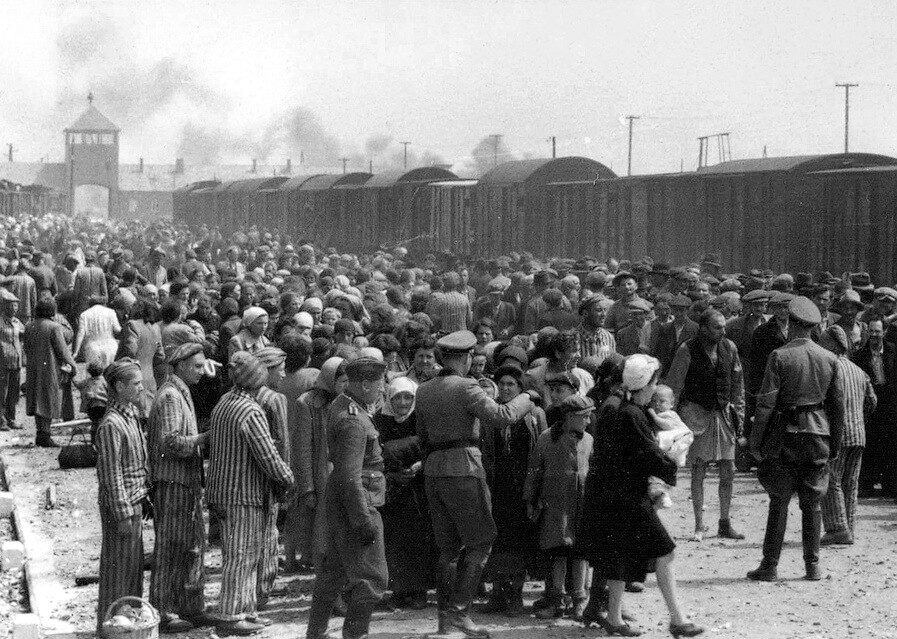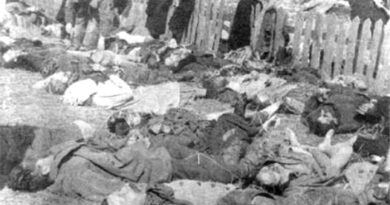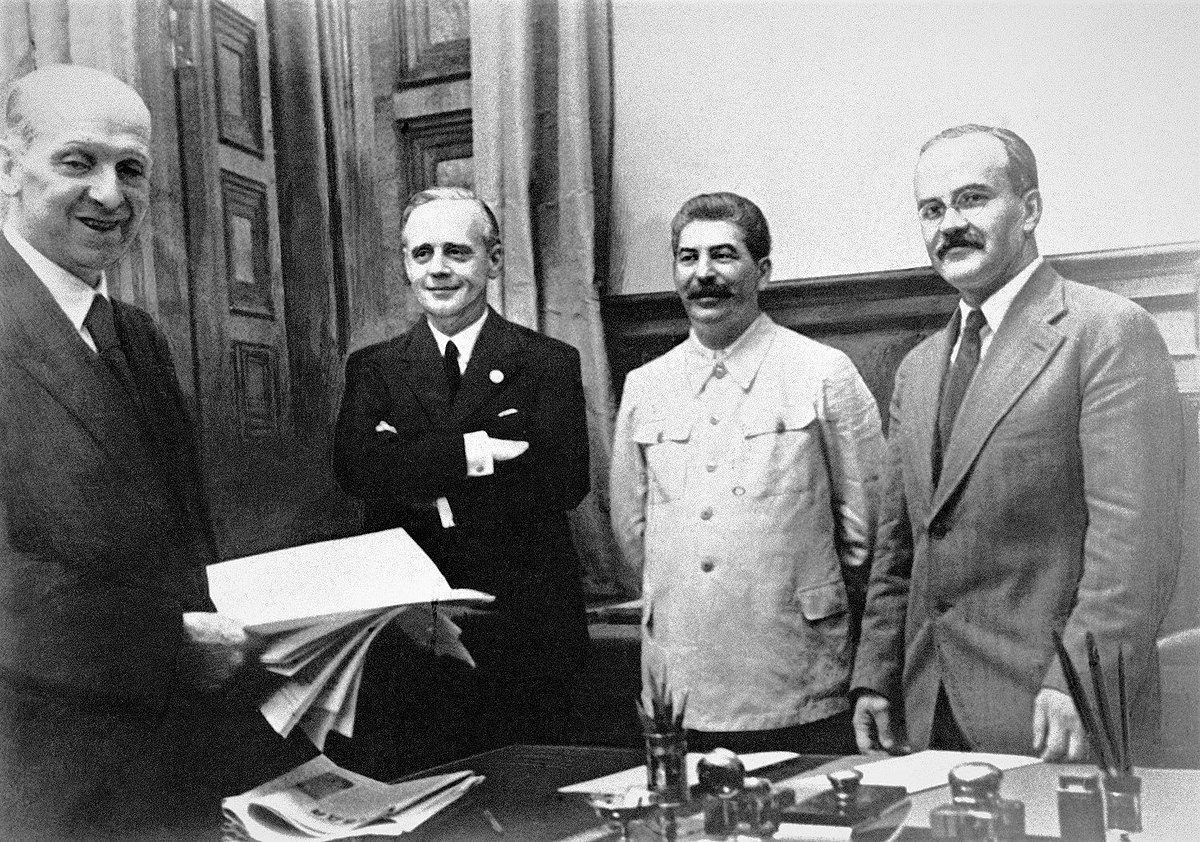The struggle for the truth about our history

Treading on unexplored legal paths, battling against giant media corporations by small law firms, and forcing foreign editors to straighten out falsehoods. This is the behind-the-scenes of the struggle for the truth about our history.
Radosław Wojtas
“What motivated me? I guess the prevailing factor was that I was fed up with the feeling of helplessness when somewhere in the world someone used the term “Polish concentration camps,” says attorney Lech Obara. “There was a sense of shame that we are lawyers, we have in our hands the tools we use to fight for various personal goods. We knew that some good – not yet identified at the time, because there were no such lawsuits – was being violated, and no one was dealing with it – neither the state, nor large law firms with hundreds of employees and expert backgrounds. And besides, I myself felt personally affected by it. We decided that this is our task, our mission,” adds the founder of the Patria Nostra association, whose goal is to unite former concentration camp prisoners, their descendants, and legal professionals.
LIKE DAVID AGAINST GOLIATH
When Lech Obara was approached by Zbigniew Osewski, who wanted to sue the publisher of Die Welt for the “Polish camps,” Obara already had a large pro bono case behind him, via which he had gained both recognition and a reputation as a lawyer who is not afraid to throw down the gauntlet to those more powerful than himself. He sided with Biedronka’s employees in lawsuits in which they accused the retail chain of exploitation and labor rights violations. Obara’s firm of a few legal advisors and attorneys against big money and top lawyers. “We won the most important lawsuits, the rest ended in settlements. We are glad that we changed the world of labor law a little then. We proved that we are not some kind of colony, that Polish workers must be respected. We also led to the fact that dignity and the right to safe and hygienic working conditions began to function in Polish jurisprudence,” Lech Obara stated.
With Zbigniew Osewski’s case against the publishing house Axel Springer Societas European, the legal advisor was entering completely new ground. Osewski, whose grandfather lost his life in the Iława labor camp, a sub-camp of Stutthof, felt offended by the phrase used in November 2008 in the pages of Die Welt: “Polnische Koncenrationslager Majdanek.” – I’ll frankly admit that we had a problem naming the personal right that was violated. We looked in the Civil Code, where there are provisions for various personal rights, but none could be used in this case so we had to name them ourselves somehow,” recalls attorney Obara.
Another problem was that the lawsuit was brought not by a former prisoner of the Polish-named Majdanek camp, but by the grandson of a prisoner from a completely different camp. A third problem was the then-unresolved issue – whether this type of case could be reviewed by a Polish court, or whether it should fall within the jurisdiction of a German court.
“We started talking to law professors, all of whom told us that this could not be won. Until we came across the late Professor Aurelia Nowicka from Adam Mickiewicz University in Poznań, who lifted our spirits and referred us to a series of articles by her doctoral student Filip Rakiewicz, who theorized that there is such a good, which he called, the right to national identity. This gave us a lot to go on and we took a risk and joined the lawsuit,” adds Lech Obara.
In the first instance, the lawsuit was dismissed, but already the appellate court had recognized that there is local and subject matter jurisdiction and that there is such a good, which the plaintiffs called national dignity and national identity. Zbigniew Osewski demanded a personal apology and an order that the publisher first pay PLN 500,000 to charity. However, when more articles using the phrase “Polish concentration camps” were brought to light as evidence during the trial, the demanded sum was increased to PLN 1 million.
In the end, he was not successful in getting the form of apology he wanted, nor did he hit the big publisher in the pocket, but he did lead the Warsaw Court of Appeals to recognize that “national identity” and “national dignity” should be included in the category of personal rights subject to legal protection. And that if Majdanek is labeled as a “Polish camp,” it is not at all necessary to be a former Majdanek camp inmate for the so-called “individualization requirement” to be met, and therefore for one to be able to sue for violation of personal rights.
PLAYING FOR TIME
In lawsuits brought by former concentration camp inmates, defendants often use not only legal tricks and tools, but also…the inescapable laws of biology. “I suspect that the Germans are playing for time. They are probably hoping that I won’t live to see the end of the trial and the case will be resolved,” he said in 2015. Karol Tendera, a former Auschwitz prisoner, who sued ZDF television for the fact that on July 1st, 2013, its portal featured the sentence, “The discovery of the Polish extermination camps in Majdanek and Auschwitz in July 1944 and January 1945.” And the media, observing the actions of the news giant and their lawyers, asked straightforwardly, “Are the German court and ZDF waiting for the Polish Auschwitz prisoner to die?”

Karol Tendera has become a symbol of the fight against “Polish camps.” He stated before a Polish court: “I was in three camps and in all of them the Germans, not the Poles, hanged, beat, tortured, and burned. It must not be allowed to be shouted that it was a mere mistake, I will not accept it and I do not agree with it!” The Cracow Court of Appeals ordered ZDF television to apologize to the former Auschwitz prisoner on its website, but the station, unwilling to comply with the verdict, tried to shift the dispute to German soil. Initially unsuccessful, ZDF even turned to the highest judicial institution in the German legal system, the Federal Court of Justice in Karlsruhe, which ruled that the station did not have to abide by the ruling in Poland. “We appealed to the German Constitutional Court, but the latter, due to Tendera’s death, declined to rule. We have before us an option to appeal to the European Court of Human Rights, which we are using,” said Lech Obara.
In the case of Karol Tendera, Polish MEPs interpellated, Poles sent letters, on German-language profiles published graphics reminding people that the Germans are responsible for the death camps, the Polish community of Chicago organized a truck ride across the United States with a banner “German Death Camps” in 2017. The Urban and Rural Traditions Foundation coordinated an action in which a large illuminated banner with the words “Death Camps Were Nazi German” was sent to Germany. It was presented, among others, in front of the ZDF television headquarters, and later in Brussels and London, among other places.
Karol Tendera did not live to see the sentence carried out, and died on October 1st, 2019. In the spring of last year, the Warsaw Court of Appeals asked the Court of Justice of the European Union a preliminary question about which court – Polish or German – has jurisdiction to hear the cases of the so-called “Polish death camps.” “For the first time ever, the attorneys for the German publisher have succeeded in getting the Polish court to try to break the well-established line of case law on this issue,” comments Lech Obara’s law firm, which is defending the CJEU’s interpretation along with the government.
“The European Commission sided with the German publisher. We are now waiting for the CJEU’s verdict. Before it is issued, the CJEU Advocate General will speak on the matter on February 21st. It may turn out that we will be deprived of the right to a Polish court in cases of any historical lies,” says Lech Obara.
Iwona Arent, a delegate to the Parliamentary Assembly of the Council of Europe, recently interpolated on the Tendera vs. ZDF case at the Council of Europe. She asked: “During the German presidency of the European Council, a German court ruled that the German public television station ZDF does not have to apologize to Mr. Karol Tendera – a prisoner of the Auschwitz German concentration camp – for using a lying and hurtful phrase against him and other former prisoners. The German court acted in a manner contrary to European law. You were obliged by EU law to recognize the Polish court’s judgment in this case ordering an apology. My question is, does the rule of law and recognition of judgments also apply to Germany? A man who was tortured in Auschwitz by Germans can be insulted with impunity after many years on German public television. Is this justice and the rule of law?”
“I believe that after so many years have passed since the War, people should already know well what the German concentration and extermination camps were. My method of proceeding is that I always first ask what the person who called the camps “Polish” meant. It is necessary to talk and explain. The worst thing is when emotions are involved, because you know where they lead,” says Stanislaw Zalewski, a former Auschwitz-Birkenau prisoner and president of the Polish Union of Former Political Prisoners of Nazi Prisons and Concentration Camps. “However, one must distinguish between commercial activities. The media sometimes deliberately create scandals in order to get coverage. The press has to be read, it has to generate reactions so that people are curious and so that they buy it and read it,” adds the union president, who in 2018 filed lawsuits against the publishers of a newspaper and a radio station from Bavaria. Their online publications called the German death camps at Sobibor, Treblinka, and Bełżec “Polish camps.”
THOUSANDS OF RECTIFICATIONS
The fight against attempts to distort history is handled by the Polish League Against Defamation. Among the cases handled by the League is one that its founder and president Maciej Świrski brought against the German online newspaper Frankfurter Rundschau for an article suggesting that the Holocaust was not a purely German act, and that Poles were also jointly responsible. “The District Court in Warsaw agreed with me. For the first time, a Pole born after World War II, who was not directly affected by the events of 1939-1945, was to be issued an apology. The Polish court admitted that I had standing, and even though I was born after the War, as a Pole, I had the right to intervene in such cases. This was that breakthrough in the doctrine, and this is that success of ours. The League has supported eight successful lawsuits against various individuals defaming Poles. The most recent trial supported by the League was the high-profile case of Filomena Leszczyńska vs. Jan Grabowski and Barbara Engelking, when we successfully proved the unreliability of these historians,” says Maciej Świrski.
He stresses that a large part of the League’s activities are those undertaken without publicity, as they do not involve filing lawsuits widely reported in the media. “The League was established before the Polish state had any historical policy, and in fact when it had an anti-historical policy. Until 2015, with a small antecedent between 2007 and 2008, there was practically no such historical policy. Poland was silent on its issues,” says Świrski. “I remember searching the Internet for days and nights at the time and writing emotional emails demanding corrections regarding, among other things, ‘Polish camps,’ and it was all like herding cats, no one even answered. Until I finally understood what mistake I was making, and which is still made today by a large part of the community sensitive to such values as patriotism and the good name of Poland. It is the conviction that Poland is the center of the world, everyone is interested in Poland, and it is necessary to communicate about Poland very loudly and in a manner that is, let’s call it aggressive. The problem is that only Poles think and care about Poland, no one else,” he adds.
According to Maciej Świrski, today 70-80% of the Leauge’s interventions are effective. Each of them is based on the same grounds: “The use of the phrase ‘Polish concentration camp’ is hate speech based on the Auschwitz lie using national and ethnic prejudices.” “The use of the language of political correctness results in an understanding of the problem and, consequently, the improvement of texts. And other language is not understood by modern media journalists in the world. Emotional attacks on the media are perceived as Polish megalomania, propaganda and a desire to hide one’s own guilt,” Świrski states.
(…)
The text was published in 2021 in the “Do Rzeczy” weekly



